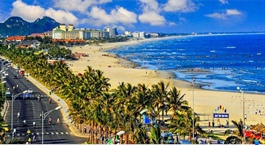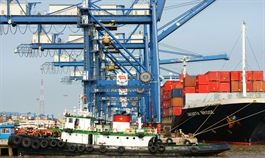Experts: E-commerce to grow solidly in 2021
Experts: E-commerce to grow solidly in 2021
Viet Nam’s e-commerce market will maintain its solid growth trajectory this year, analysts said at a ceremony announcing Viet Nam’s E-Business Index within the framework of the Vietnam Online Business Forum on Tuesday. 
Speaking at the event, a representative from the Viet Nam E-Commerce Association (VECOM) said enterprises have become more dynamic and gradually adapted to e-commerce. The growing number of online consumers has resulted in growth in retail, ride-hailing, food delivery, online payments, training, and marketing.
Nguyen Binh Minh, of the VECOM executive committee, said e-commerce was growing primarily in Ha Noi and HCM City, and consumers were spending more on luxury and high-value goods or saving to buy necessities.
Trinh Khac Toan from Amazon Global Selling Vietnam said e-commerce were developing strongly, with growth of 22 per cent recorded over the last five years, which was expected to exceed 20 per cent in 2021 alone.
Experts said the E-business Index in 2020 was based on three criteria: human resources and infrastructure in information technology, e-commerce transactions between businesses and consumers, and between among businesses.
Notably, HCM City still led the index with 67.6 points, ahead of Ha Noi with 55.7 points and Da Nang with 19.
The southern province of Dong Nai rose to fifth place, behind Binh Duong, with 11.14 points. The northern port city of Hai Phong moved down to sixth from third.
During the 2016-20 period, the e-commerce gap between Ha Noi and HCM City and other localities remained virtually unchanged.
Experts forecast that online businesses will grow 29 per cent during the 2021-25 period, and Viet Nam’s digital economy is expected to reach US$52 billion by 2025.
Figures from VECOM show the e-commerce market increased 16 per cent last year to more than $14 billion. Of this, online retail grew 46 per cent, ride-hailing and food delivery 34 per cent, and online marketing and games 18 per cent. Online tourism, meanwhile, fell 28 per cent.



























